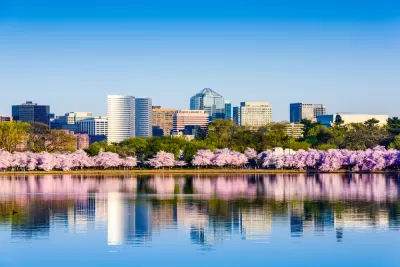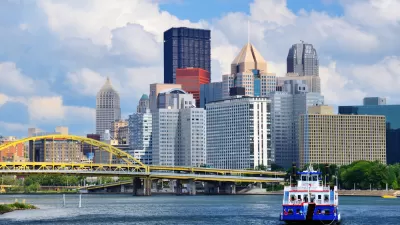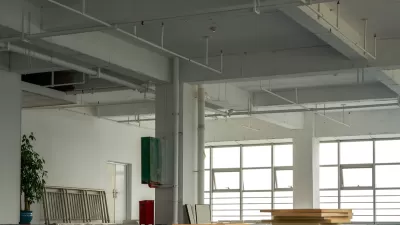Mayor Bowser wants to encourage adaptive reuse of office buildings and bring 100,000 new residents to the downtown core.

In an effort to stimulate economic development and alleviate the region’s housing shortage, D.C. Mayor Muriel Bowser has set a goal to add 15,000 new residents in the next five years to the District’s downtown through adaptive reuse conversions.
As Danielle McLean explains in Smart Cities Dive, the mayor hopes to grow the area’s population by over 100,000. “The mayor’s new goal would increase the number of residents in that part of the city by nearly 67% within the next five years and almost 600% when ‘it’s all said and done.’” According to Bowser, “Converting office space into housing is the key to unlocking the potential of a reimagined, more vibrant downtown.”
McLean notes that “Between January 2019 and October 2022, D.C. produced over 25,000 net new units, more than 6,000 of which are affordable, according to city estimates,” but Bowser added that economic development in the District depends heavily on the federal government. “The federal government needs to realign its property holdings for use by the local government, nonprofits, businesses or others willing to utilize those spaces, Bowser said.”
FULL STORY: DC mayor sets goal of 15,000 new residents downtown within 5 years

Study: Maui’s Plan to Convert Vacation Rentals to Long-Term Housing Could Cause Nearly $1 Billion Economic Loss
The plan would reduce visitor accommodation by 25,% resulting in 1,900 jobs lost.

Alabama: Trump Terminates Settlements for Black Communities Harmed By Raw Sewage
Trump deemed the landmark civil rights agreement “illegal DEI and environmental justice policy.”

North Texas Transit Leaders Tout Benefits of TOD for Growing Region
At a summit focused on transit-oriented development, policymakers discussed how North Texas’ expanded light rail system can serve as a tool for economic growth.

Comment: EPA Cuts will Send Atlanta Back to Eye-burning Ozone, Lung-damaging Smog, and Raw Sewage in the Chattahoochee River
A veteran political journalist takes stock of the hard-earned ground Georgia stands to lose with slashed environmental protection.

How Community Science Connects People, Parks, and Biodiversity
Community science engages people of all backgrounds in documenting local biodiversity, strengthening connections to nature, and contributing to global efforts like the City Nature Challenge to build a more inclusive and resilient future.

Alabama: Trump Terminates Settlements for Black Communities Harmed By Raw Sewage
Trump deemed the landmark civil rights agreement “illegal DEI and environmental justice policy.”
Urban Design for Planners 1: Software Tools
This six-course series explores essential urban design concepts using open source software and equips planners with the tools they need to participate fully in the urban design process.
Planning for Universal Design
Learn the tools for implementing Universal Design in planning regulations.
City of Santa Clarita
Ascent Environmental
Institute for Housing and Urban Development Studies (IHS)
City of Grandview
Harvard GSD Executive Education
Toledo-Lucas County Plan Commissions
Salt Lake City
NYU Wagner Graduate School of Public Service




























